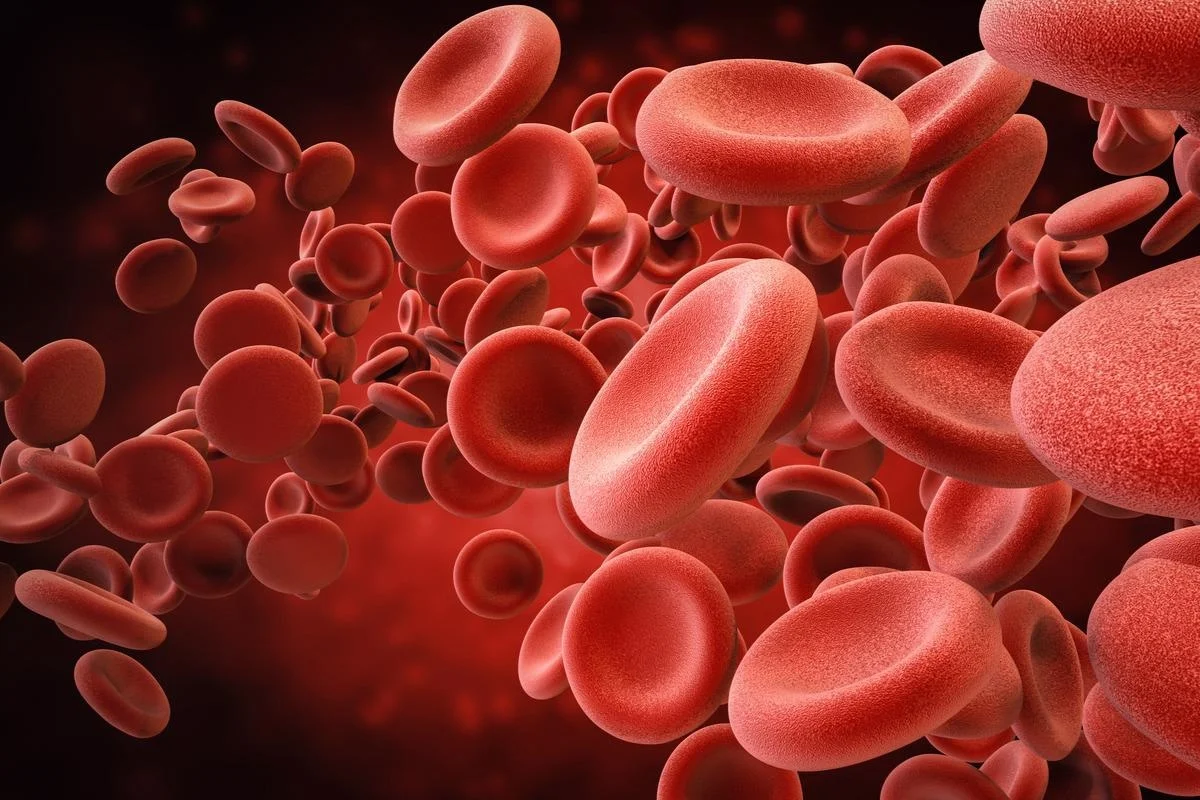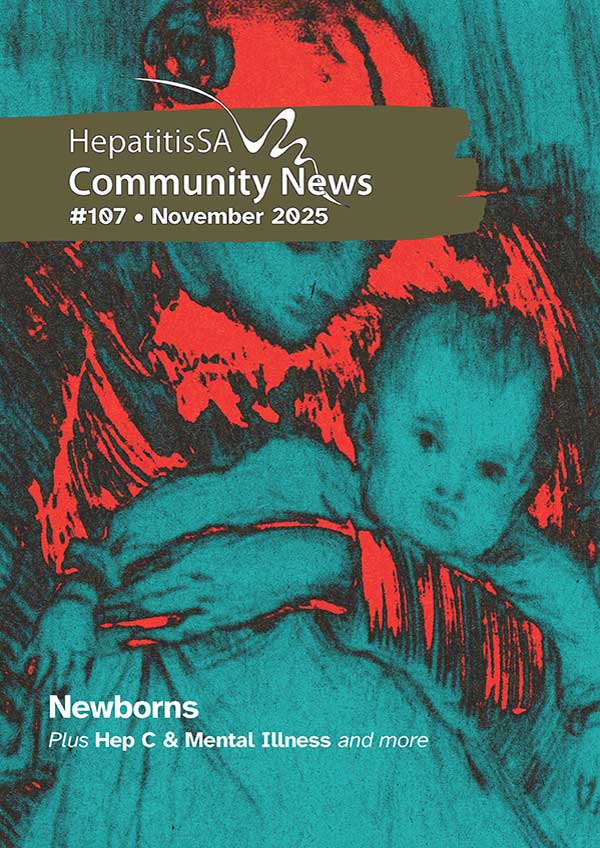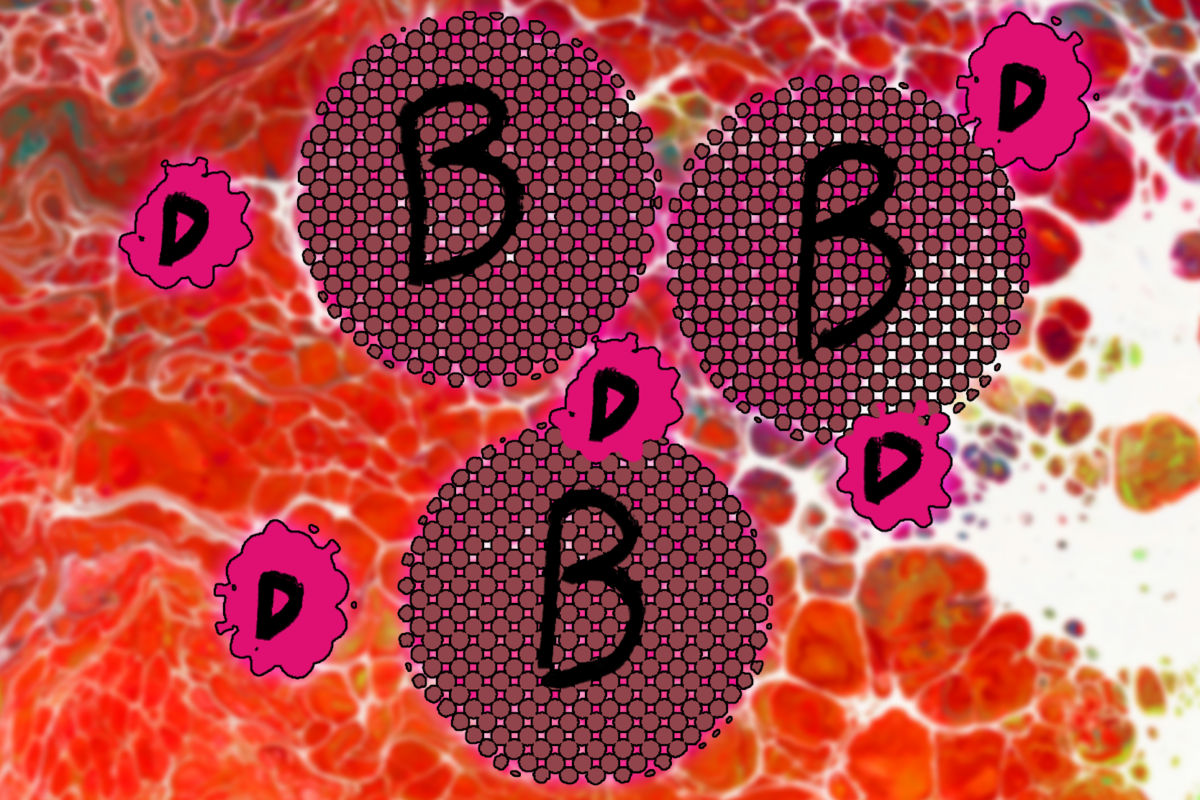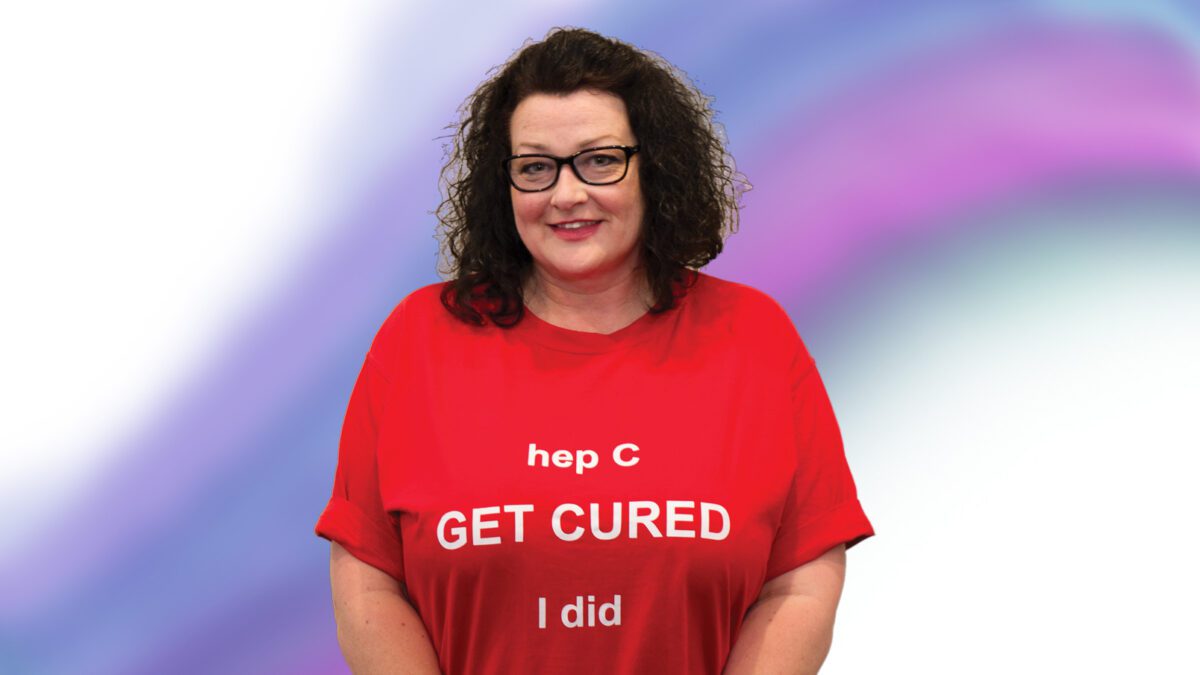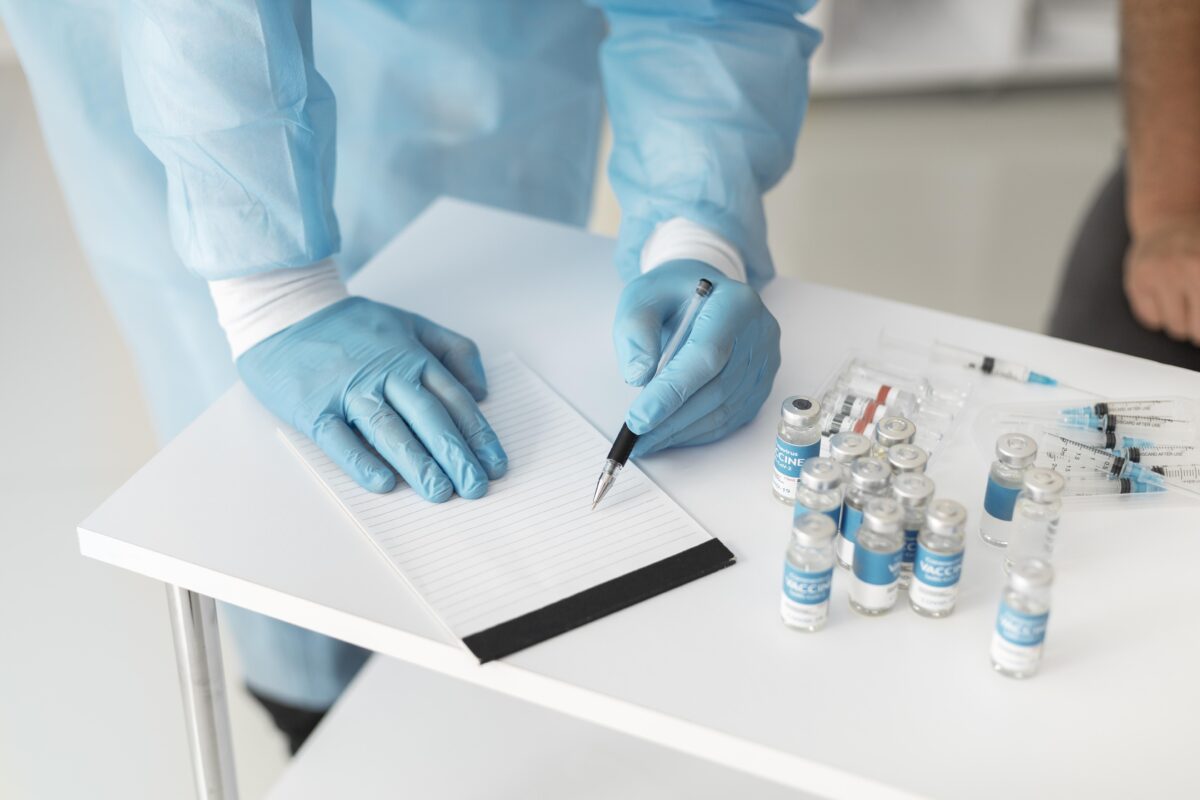From haemophilia.org.au
For Jake (name changed for privacy reasons), managing hepatitis C and taking care of his liver health has been a long journey, but every step has been worthwhile. Jake has mild haemophilia. He first found out he had hepatitis C as a young boy in the 1980s when the children’s hospital called him in for testing. At the time he was more worried that he might have HIV, as that was a big concern for people with haemophilia. This is his story as told to Haemophilia Foundation Australia.
“It was a strange time. When they told me and my parents that I had non-A non-B hepatitis—that’s what hep C was called then—the nurses were all gowned up and wearing gloves and masks. I had never seen it before. It was a bit like COVID.”
Liver health problems
After his diagnosis Jake was monitored regularly with liver function tests. His doctors explained that hep C might progress slowly and they would need to keep an eye on his liver health.
For quite a few years there was little change and I didn’t think much about it. Then in my mid-20s the doctors could see some small differences in my liver function tests. I had a transjugular liver biopsy and that showed a little bit of damage in my liver.”
But suddenly in his early 30s his liver health started deteriorating and at a rapid rate. This was some years before 2016, when the new highly successful DAA hep C therapies became available in Australia. He commenced triple therapy treatment with telaprevir, interferon and ribavirin but did not respond to treatment.
“That was really disappointing and I was very upset. The next year I had another biopsy and they told me that I had definitely developed cirrhosis. Things got really bad for me then. I felt horrible, tired and very anxious.”
Hep C cure
With a combination of non-response to treatment and haemophilia, his options for clinical trials in Australia were very limited at the time. Desperate, he applied for clinical trials around the world and just as he was losing hope, he had a positive reply from a clinic in the USA. This was no ordinary situation. He persuaded the clinic he could take responsibility for himself and his health, his hospital in Australia provided all his clinical documentation, then he travelled to and from the USA to participate in the trial.
His hep C treatment was Harvoni (ledipasvir and sofosbuvir), one of the DAA therapies that are now widely available in Australia.
“I had one tablet a day for 12 weeks. Side effects? Some confusion and blurry vision, but my liver was in pretty bad shape so it might have been something else. And it all returned to normal as soon as I finished treatment. It was a piece of cake compared to interferon.”
When he received his results showing he had been cured of hep C, Jake was not surprised. “I already knew. I felt different. I felt good”
Cirrhosis monitoring
Even though his hep C has been cured, Jake had cirrhosis before treatment, which means he needs ongoing liver health monitoring.
“I have to have 6-monthly liver checkups because with cirrhosis I’m at an increased risk of cancer. I go to a liver clinic at the hospital to see a specialist – the same hospital as my Haemophilia Treatment Centre, just in case there are any issues with my haemophilia.”
Jake sees this as part of his routine care. He has some tests and a Fibroscan ultrasound, then follows up with an appointment with the specialist about a week later to discuss the results. With COVID, his specialist appointment is now via telehealth.
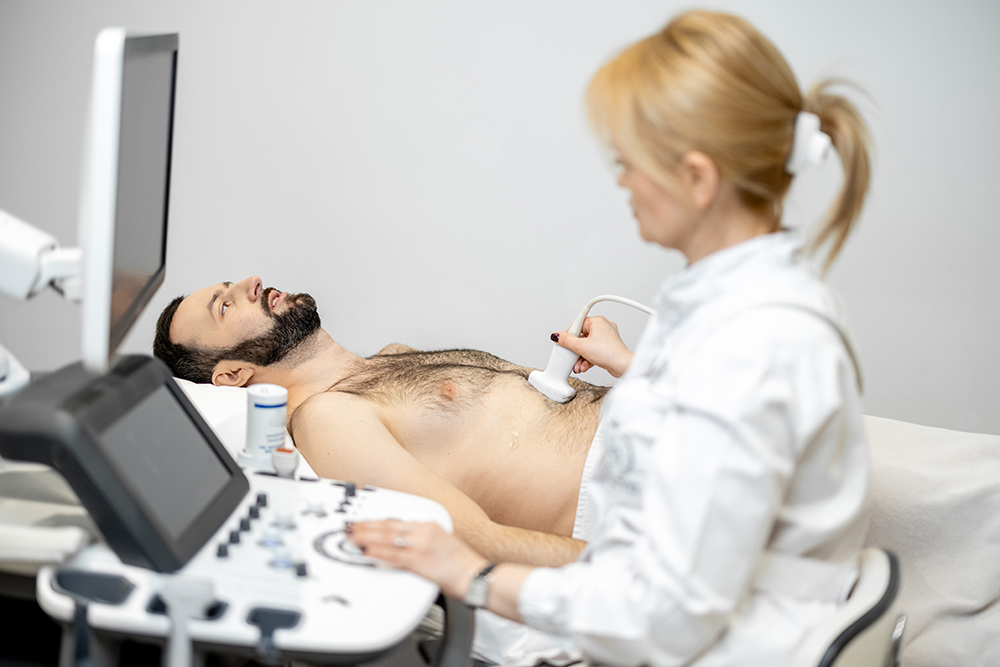
“It’s no big deal. As we get older, we need to be more careful of our body anyway. The liver function tests are normal blood tests—I just have them every 6 months, along with other regular blood tests I have, like cholesterol and blood sugar. And I can do them at the pathology unit at the weekend if I want to. The ultrasounds are at the hospital. They are painless, take 5 minutes.”
While it can involve time off work, Jake thought the effort was well worth it.
“I don’t think anyone likes to have health checks all the time, but it is definitely peace of mind. If they find something, they can act on it straight away. You don’t want to find out down the track when there is not much you can do.”
Liver health and well-being
Since his hep C cure, Jake’s liver health has improved remarkably.
“I still have a bit of liver damage now, but it is not nearly as bad as before treatment. It’s amazing.
“Now that my liver is working better, everything is better. I have as much energy as when I was 21 years old. My moods are better. I don’t get itchy, I don’t get brain fog, I feel fine after a big meal.”
Jake has made changes to his lifestyle to take care of his health generally and thinks this has made a difference to his liver health recovery.
“I do help my body a lot. I haven’t drunk alcohol in 14 years. I don’t smoke. I walk a lot. I eat a Mediterranean diet and don’t eat much red meat or sugar.”
His message to others?
“We are living in different times. Anyone thinking about hep C treatment, just do it. Don’t hesitate. No one should live with hep C, especially these days. Treatment has never been easier.
“The damage to my liver happened so quickly. For years there was no change, then suddenly it went from bad to much worse. Make the effort to have treatment and follow up on your cirrhosis. Don’t give up. Life’s too short to take chances.”
This story was first published on the Haemophilia Foundation Australia website in July 2022, and is reprinted with permission.
Last updated 23 May 2024
More from:
Enjoyed this article? Subscribe to be notified whenever we publish new stories.
Subscribe for Updates
